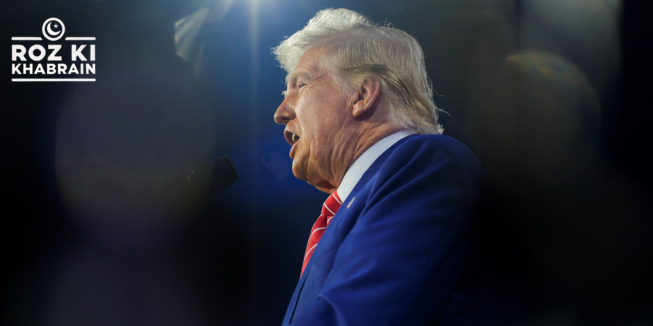Donald Trump’s imperialistic ambitions regarding Greenland, Canada, and Panama often sound like the musings of a real estate mogul who views foreign and trade policies as a quest for new deals. However, there is a method to his expansionist approach. Trump, in his distinctive style, is confronting national security challenges that the U.S. must address in a world increasingly shaped by China’s rise, the disparities of globalization, melting polar ice, and global instability.
Trump’s actions reflect the “America First” doctrine, which emphasizes using U.S. strength to pursue narrow national interests, even at the expense of smaller, allied countries.
His comments about potentially terminating the Panama Canal Treaty illustrate the administration’s concerns about foreign influence in the Western Hemisphere—a topic rooted in U.S. history dating back to the Monroe Doctrine in the 1820s when European colonialism was seen as a threat. Today, the perceived encroachers are China, Russia, and Iran.
Trump’s belief that the U.S. should dominate its sphere of influence offers insight into his stance on global flashpoints such as the war in Ukraine and Taiwan.
However, his 21st-century version of neocolonialism could lead to significant risks, possibly clashing with international law and undermining America’s power by alienating allies and trashing long-established partnerships.
Trump’s Military Options and Economic Force When asked about the potential use of military force to reclaim the Panama Canal or Greenland, Trump responded cautiously, suggesting that military action might be necessary. While his comments about using force raised concerns, Trump reassured Canadians that he wouldn’t deploy military action against them but would instead use economic pressure to make Canada the 51st state.
Trump’s threats were laced with both malice and humor, such as when his son Donald Trump Jr. arrived in Greenland with a bobblehead of the president, making light of his father’s comments about the territory.
Though Trump’s goals regarding Canada, Panama, and Greenland seem unlikely to materialize, his strategy may be about securing better deals for the U.S., such as lower fees for American ships passing through the Panama Canal, access to rare earth minerals in Greenland, and new trade agreements with Canada that favor U.S. manufacturers. Any of these, even if somewhat superficial, would likely be presented as major victories for Trump.
America First and Global Dominance Trump’s foreign policy rationale is clear: each nation should pursue its own interests aggressively, with powerful countries like the U.S. inevitably benefiting. His doctrine, shaped by a life of striving to outmaneuver weaker opponents, is exemplified by his demand for Denmark to cede Greenland to the U.S. for national security reasons or face heavy tariffs.
Trump’s rhetoric about the Panama Canal reflects his broader critique of the U.S. relinquishing control over strategic assets. His misstatements about Chinese control over the canal, despite Chinese firms running some ports, highlight his fixation on reasserting U.S. dominance in its own hemisphere.
The U.S. and Latin America: A New Monroe Doctrine? Trump’s rhetoric signals a shift from globalism to “continentalism,” focusing on the Western Hemisphere and responding to the rising influence of China, Russia, and Iran in Latin America. This represents a modern update to the Monroe Doctrine, originally articulated in 1823, aimed at preventing foreign powers from meddling in the Americas. While his tough stance may have been effective in positioning the U.S. against these foreign powers, it risks alienating key regional allies.
Potential Backlash and the Risk of Isolation Trump’s aggressive rhetoric has raised concerns that his approach could backfire. A possible military intervention to seize the Panama Canal or Greenland would violate international law and invite significant global condemnation. His comments about Canada potentially becoming part of the U.S. were met with ridicule from Prime Minister Justin Trudeau, signaling a deepening rift between the U.S. and its closest neighbor.
This tough approach risks pushing countries closer to China and weakening America’s longstanding alliances. Additionally, it could poison relationships with some of America’s closest allies, including Canada and Denmark, and harm U.S. diplomatic standing worldwide.
Trump’s dismissal of the patriotism of other nations and his disregard for the sovereignty of countries like Greenland may further strain these relationships, causing unease among populations and leadership alike. As one Greenlandic politician noted, the U.S. is creating fear and discomfort with its proposals to control the island.




